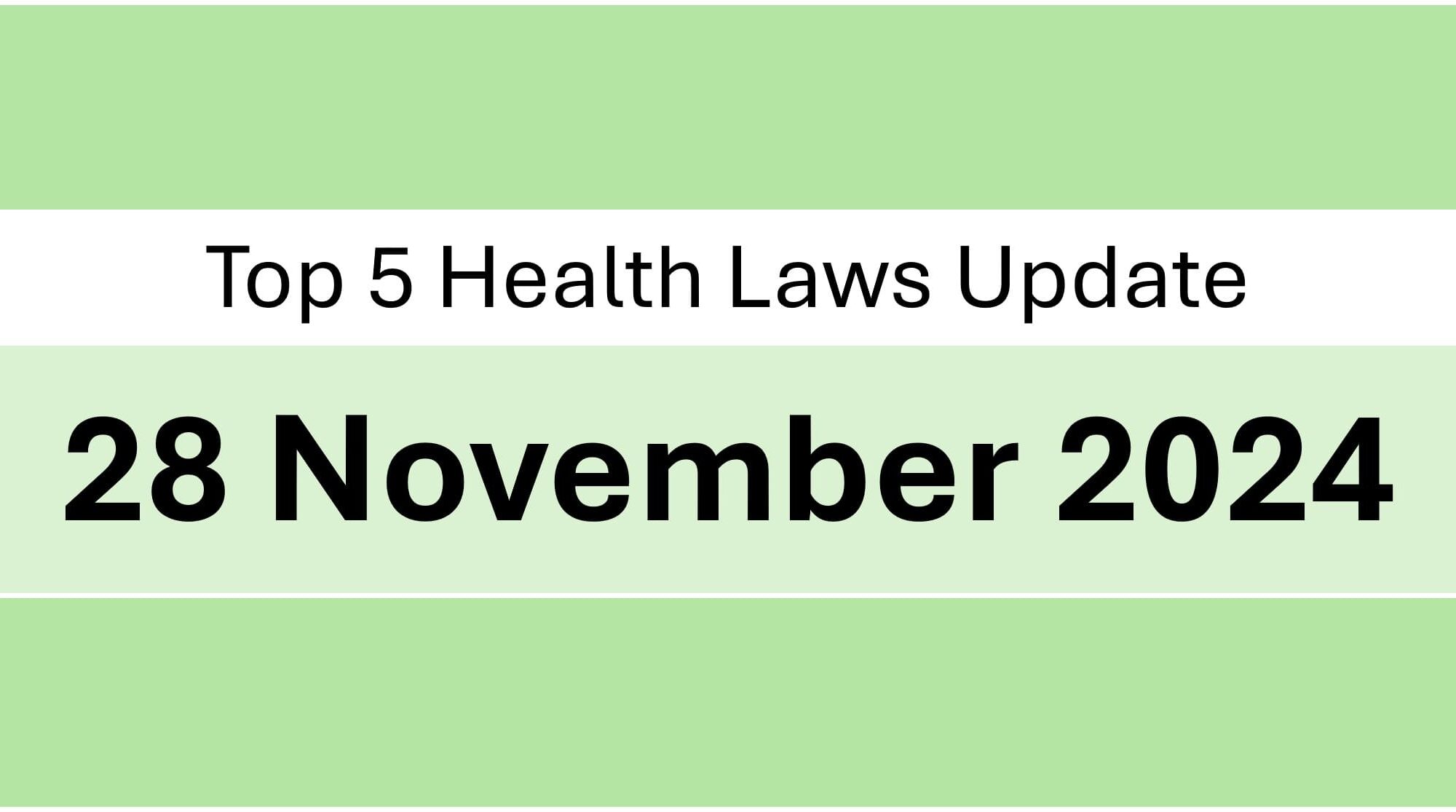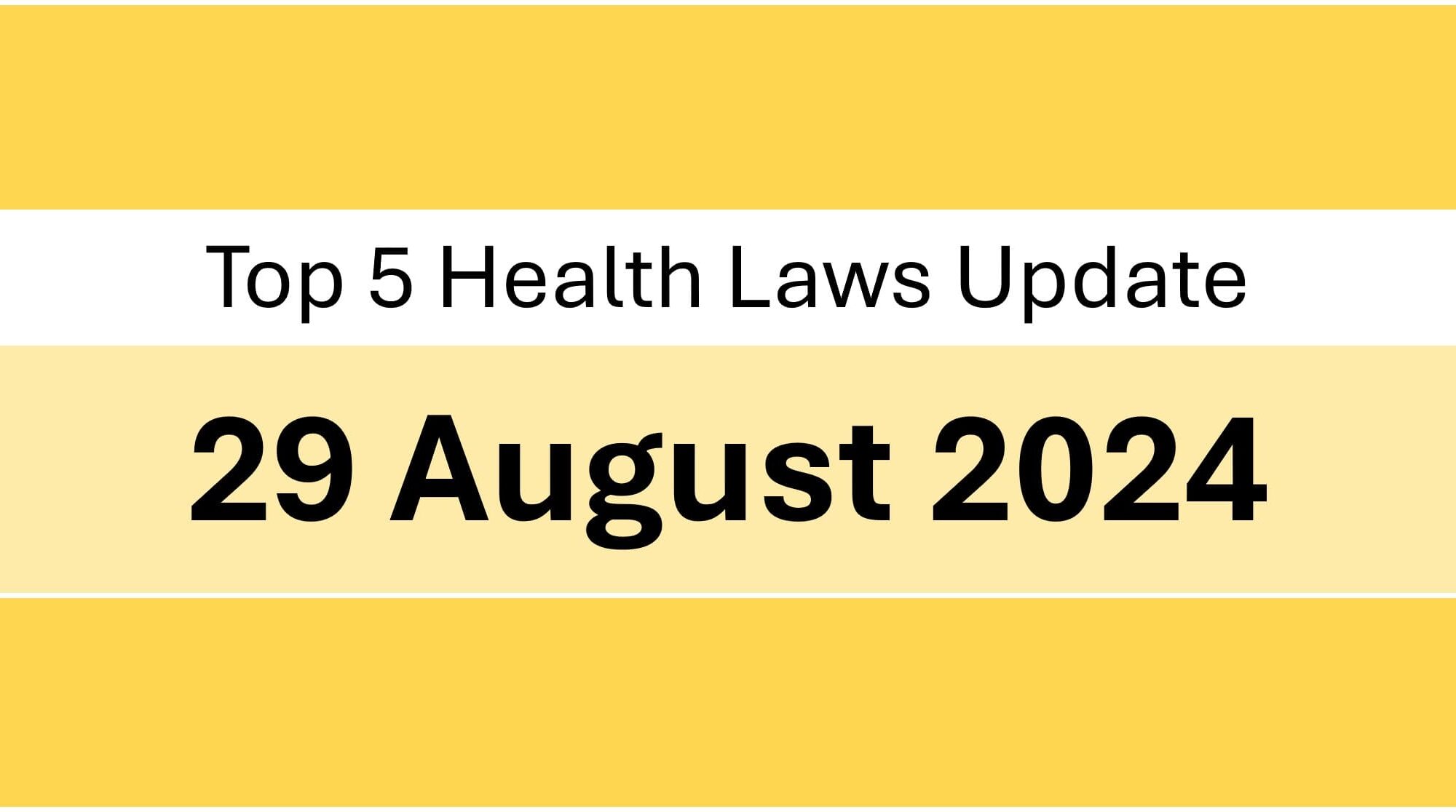Dear Readers, we are happy to share the most interesting legal and policy updates concerning health industry that we read today. we hope you enjoy reading it.
1. India’s Central Pollution Control Board (CPCB) has issued a Show Cause Notice to Producers, Importers, and Brand Owners (PIBOs) of Plastic Packaging for non-compliance with the Plastic Waste Management Rules, 2016. PIBOs must file their Annual Report and pay Annual Processing Charges for the FY 2023-24 to fulfill their Extended Producer Responsibility (EPR) obligations by 30th November 2024 to avoid levying of environmental compensation under the Environmental (Protection) Act, 1986.
Source: bit.ly/3Zs0XWY
2. India’s Directorate General of Foreign Trade (DGFT) has amended ITC (HS) 2022, Schedule-I (Import Policy), to align the latest tariff schedules and the Finance Act 2024 (No. 2 of 2024). The changes include updates to ITC (HS) codes through additions, deletions, amendments, splits, and mergers, aimed at streamlining import regulations, clarifying compliance standards, and fostering ease of doing business in international trade.
Source: bit.ly/3ZrYaNm
3. India’s Allahabad High Court has ruled that under the Food Safety and Standards Act, 2006 (FSS Act 2006), an offence will be considered to have occurred when the food analyst’s report confirming the violation is received, rather than when the food sample was collected by the Food Safety Officer. The ruling clarifies the timeline for initiating legal action under the Act.
Source: bit.ly/3Vc5hqA
4. India’s Goods and Services Tax Network (GSTN) has issued an advisory informing taxpayers about the launch of a new e-Services app, replacing the old e-Invoice QR Code Verifier app. The new app offers features like scanning QR codes to verify B2B e-invoices, provides GSTIN search functionality and most up-to-date information regarding approved B2B e-Invoice.
Source: bit.ly/4i7crX3
5. The Health Sciences Authority (HSA) of Singapore has taken action to combat the illegal sale and distribution of health products by removing over 3,000 unauthorized health products listings from local e-commerce and social media platforms. In the course of this operation, the authority has issued 1,471 warnings to sellers in an effort to safeguard consumers from substandard or counterfeit products.
Source: bit.ly/4ic7gF8


